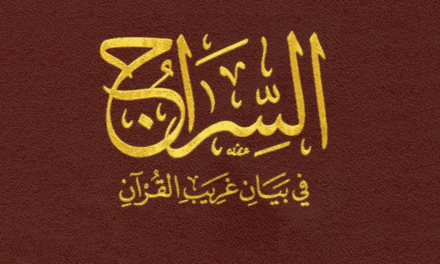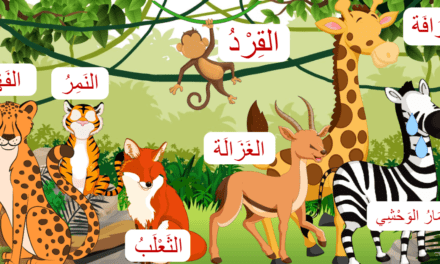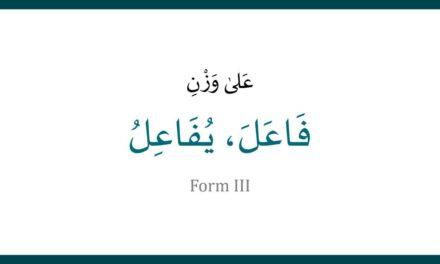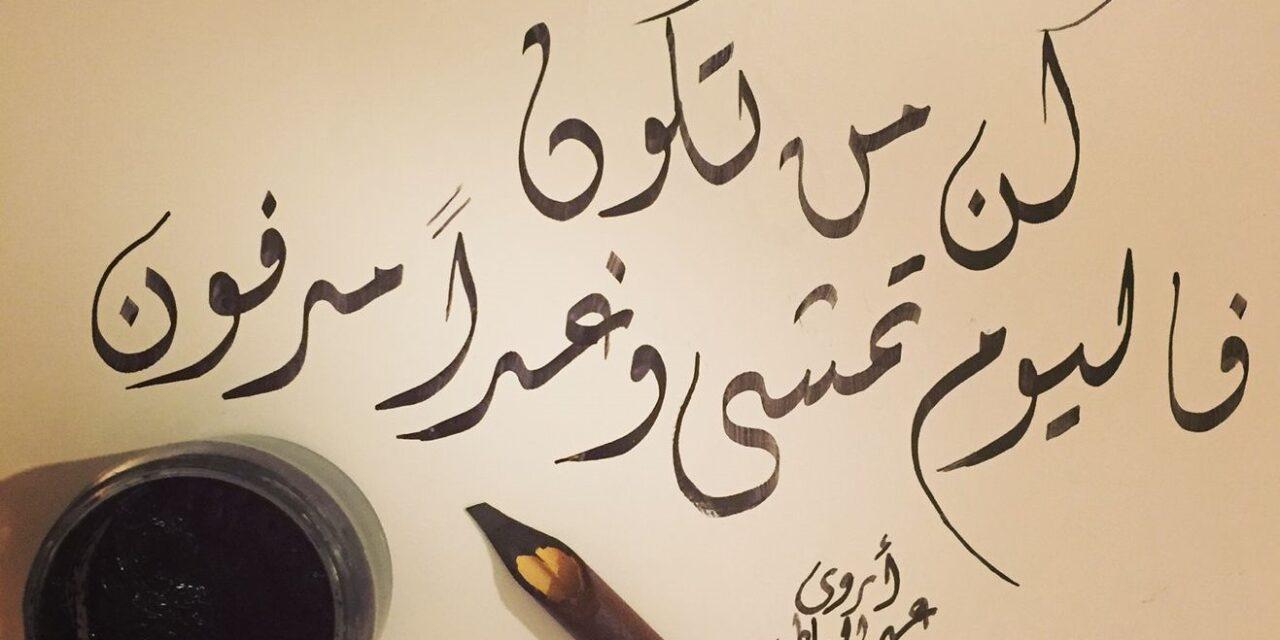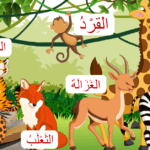If you’re reading this post, the chances are that you already know you want to learn Arabic. However, if you’re not convinced and need motivation, taking in the following points can help.
*MSA= Modern Standard Arabic
1. Arabic is spoken in about 24 countries
Learning Arabic can be very economical because it’s a language used in more than one country. MSA, although not spoken by the common people, is widely understood throughout the Middle East because it is the language used in media, literature and taught in schools.
Arabic is the 5th most spoken language in the world after Mandarin, English, Spanish and Hindi. Although every Arab country has its own regional dialect, most of the words used in the dialects are generally related to MSA in some shape or form so you can still understand the common people (though it may take some getting used).
Arabic speaking countries: Algeria, Chad, Comoros, Djibouti, Egypt, Eritrea, Libya, Mauritania, Morocco, Sudan, Tunisia, Bahrain, Iraq, Jordan, Kuwait, Lebanon, Oman, Palestine, Qatar, Saudi Arabia, Syria, United Arab Emirates, Yemen.
So knowing Arabic will give you awesome travel opportunities.
Fun fact: Arabic is one of the official languages of the UN (useful if you aim to be a translator).
2. Arabic is the language of the Islamic civilisation
Arabic has been around for more than 1000 years and is the liturgical language of Islam. So if you’re interested in Islam (whether from a spiritual or orientalist point of view), a sound knowledge of Arabic is a must in order to appreciate the linguistic beauty of the Quran and to interpret Islamic literature correctly.
Furthermore, the Arab-Islamic civilization reached peaks of intellectual excellence during the Middle Ages. It made significant contributions to science, mathematics, philosophy, literature, navigation, architecture and astrology. It also preserved knowledge from the Greeks, Romans and Byzantines in libraries in the Arab world. Knowing Arabic will allow you to explore the vast bodies of knowledge in its original form
3. Learning to read Arabic is EASY
If you can read a language, you have the means to learn that language faster.
One of the things that make learning a language difficult is when words are not pronounced as they are written.
Arabic is read the way it is written, which is what makes it straightforward. It has been codified specifically for non-Arabic speakers. Arabic didn’t originally have dots and diacritical marks (tashkeel). The Quran, which is in Arabic, was meant for Arabs and non-Arabs alike so in order for it to reach non-Arabic speakers in its original form and to prevent changes and confusion, dots and diacritical marks were introduced to make it easy for them to read and Tajweed rules put in place for them to pronounce letters correctly.
Although most modern-day texts aimed at natives don’t have diacritical marks (which essentially indicate vowels and consonants), you will start learning Arabic with the marks so you will not have issues reading. Furthermore, Arabic only has 3 vowels ‘a’, ‘i’ and ‘u’ (generally speaking). You’ll eventually be able to read long texts easily without the marks once you gain an understanding of grammar and morphology.
Note: Although you don’t need to learn the Tajweed rules to read MSA, it is useful to look at the ‘points of articulation’ (al-Makhaarij) to understand how letters are pronounced.
4. Knowing Arabic will improve job prospects
Whatever your field of work is, healthcare, law, education, finance, marketing, business, engineering etc, having a second language remarkably improves your employment prospects and your value as an employee. It makes you stand out from your colleagues and gives you a competitive edge. There is a high demand and low supply of Arabic-speakers in the Western world (and the Far East), so it is the ideal language to learn.
5. Arabic is the key to understanding a number of other languages
Just as Latin is key to learning Romance languages and understanding scientific words, Arabic can help you understand languages such as Turkish, Persian, Swahili, Urdu, Kurdish, Spanish and many others due to its influence on the languages. Trade, the spread of the Islamic empire and the mixing of Arabs with other cultures caused such deep influences. Furthermore, Arabic is a Semitic language which means it shares similarities with languages such as Hebrew, Amharic and Aramaic (the language of Jesus/Isa (may peace be upon him).
Like we said, learning Arabic is economical!
Fun fact: Maltese (the language of Malta, a country in Europe) is a Latinised variety of spoken historical Arabic. A third of Maltese vocabulary is Arabic.
6. The Middle East is a fast-growing market for trade
Not only are there a lot of Arabic speakers in the world, but the Arabic-speaking nations are also a fast-growing market for trade. To target your business effectively to a new audience, understanding the language and culture is crucial. To network well, you need to learn the language and build relationships. Middle Easterners generally have a culture of being social, helpful and generous, so you can network fast and make lots of connections.
7. Being able to communicate in Arabic will improve international relations
Learning Arabic will promote intercultural understanding as you will gain a deeper understanding of cultural, religious and political values. Westerners are often presented with a biased and negative image of Arabs and Muslims by sources like the media, literature and the entertainment industry. Going beyond this is important in order to battle misrepresentations, miscommunications and negative stereotypes.
Adequate communication and understanding improve cultural exchanges and negotiations which in turn promotes international trade and relations, limits negative political impact and aids in solving conflict. The Middle East itself is a volatile region with complex issues which need to be understood by insiders and outsiders for stability to ground itself.
8. Knowing Arabic will improve your spiritual well-being
(A point particularly for Muslims)
To improve your life spiritually as a Muslim, knowing what you’re saying as you pray and supplicate is key to sincerity. To obtain khushū’ (humility, focus, presence of the heart) in one’s prayer, knowing the meaning, implications and weight of one’s words is essential.
“Certainly will the believers have succeeded: They who are during their prayer humbly submissive [khaashi‘oon]” [Quran 23:1-2].
The five daily prayers are meant to be a means in which Muslims increase in faith, hope and positivity and improve their mental well-being and character (as a result of reflection and self-evaluation) rather than it being a mere meaningless ritual. Knowing Arabic will help you to fully immerse in your prayer. You’ll look forward to offering your prayers as you will be able to select verses of the Quran by meaning to recite according to what suits your needs and act as a reminder for yourself, understand the words of the imaam during congregational prayers and sermons, supplicate with words not expressible by your native tongue.
Plus, Arabic is a very emotionally engaging language (come back to this post when you experience that and comment below!)
9. Learning Arabic will widen your horizons
If you’re an English speaker who hasn’t learnt a non-European language, Arabic is a great option if you want to learn something different. Syntax and morphology are dissimilar. You will use your throat and tongue in new ways.
In conclusion, learning Arabic may be challenging but it is rewarding as it opens up endless opportunities and possibilities. Some which you can foresee and others which come as a surprise. Whoever embarks on the journey of learning Arabic, never fails to be intrigued. It is rich from all angles – religiously, culturally, linguistically, historically, politically.

